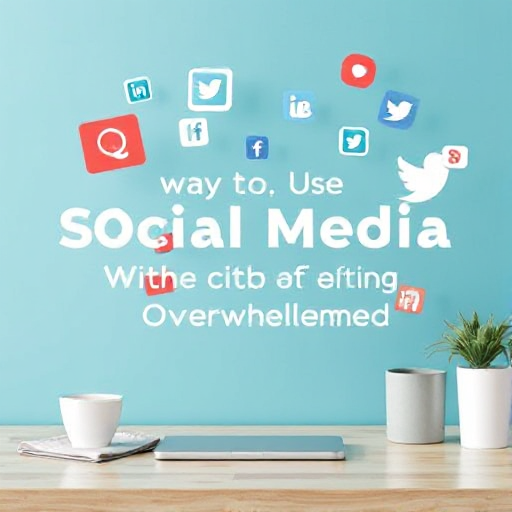
Social media has become an integral part of our lives. While it offers countless benefits, such as staying connected, learning new things, and discovering opportunities, it can also lead to stress and overwhelm. Striking a balance is crucial to ensure that social media enhances rather than detracts from your well-being. Here are some practical strategies to help you use social media effectively and mindfully.
1. Set Clear Goals for Social Media Use
Before logging into your favorite platforms, ask yourself why you’re using them. Are you looking to connect with friends, stay informed, or promote your work? Having clear goals can help you focus on what matters and avoid getting lost in endless scrolling.
Tips:
- Write down your objectives for each platform.
- Use apps or tools to monitor how much time you’re spending on each activity.
2. Limit Your Time Online
It’s easy to lose track of time on social media. Setting boundaries can help prevent this.
How to Manage Time Effectively:
- Use built-in app timers or third-party tools to limit usage.
- Schedule specific times for social media, such as during breaks or after work.
- Take regular digital detoxes to reset and recharge.
3. Curate Your Feed
The content you consume on social media has a significant impact on your emotions and mental state. Ensure that your feed reflects positivity, inspiration, and usefulness.
Steps to Curate Your Feed:
- Unfollow accounts that bring negativity or stress.
- Follow pages and people that align with your interests and values.
- Mute accounts if unfollowing feels too drastic.
4. Engage, Don’t Just Scroll
Passive scrolling can leave you feeling drained and unfulfilled. Engaging actively can make your time online more rewarding.
Ways to Engage:
- Comment on posts that resonate with you.
- Share valuable content with your network.
- Start meaningful conversations through direct messages or group discussions.
5. Practice Digital Mindfulness
Mindfulness isn’t just for meditation; it can also transform how you use social media.
Mindful Practices:
- Pause before reacting to posts or comments.
- Be aware of how certain content makes you feel, and adjust your consumption accordingly.
- Focus on one task at a time instead of multitasking between apps.
6. Learn to Say No
Social media can sometimes pressure you into participating in trends, challenges, or discussions that don’t align with your interests or values.
How to Set Boundaries:
- Politely decline invitations to online events or discussions that don’t serve your goals.
- Avoid comparing your life to others based on curated online content.
7. Leverage Tools and Features
Many platforms offer features to enhance your experience and reduce overwhelm.
Useful Tools:
- Use “Do Not Disturb” or “Focus” modes to minimize interruptions.
- Organize your notifications to prioritize important updates.
- Explore filters or AI tools that tailor content to your preferences.
8. Balance Online and Offline Life
Social media should complement your real life, not replace it.
Tips for Balance:
- Prioritize face-to-face interactions whenever possible.
- Develop offline hobbies or interests to reduce reliance on digital platforms.
- Dedicate time to self-care activities like exercise, reading, or spending time in nature.
9. Seek Support When Needed
If social media is causing significant stress or negatively impacting your mental health, it’s important to seek help.
Where to Seek Support:
- Reach out to friends or family members for advice.
- Join online communities focused on mindful social media use.
- Consider consulting a therapist or counselor for professional guidance.
Social media is a powerful tool that can enrich your life if used wisely. By setting boundaries, curating your feed, and practicing mindfulness, you can take control of your online experience and prevent it from becoming overwhelming. Remember, you have the power to shape how you interact with social media—make it work for you, not against you.






